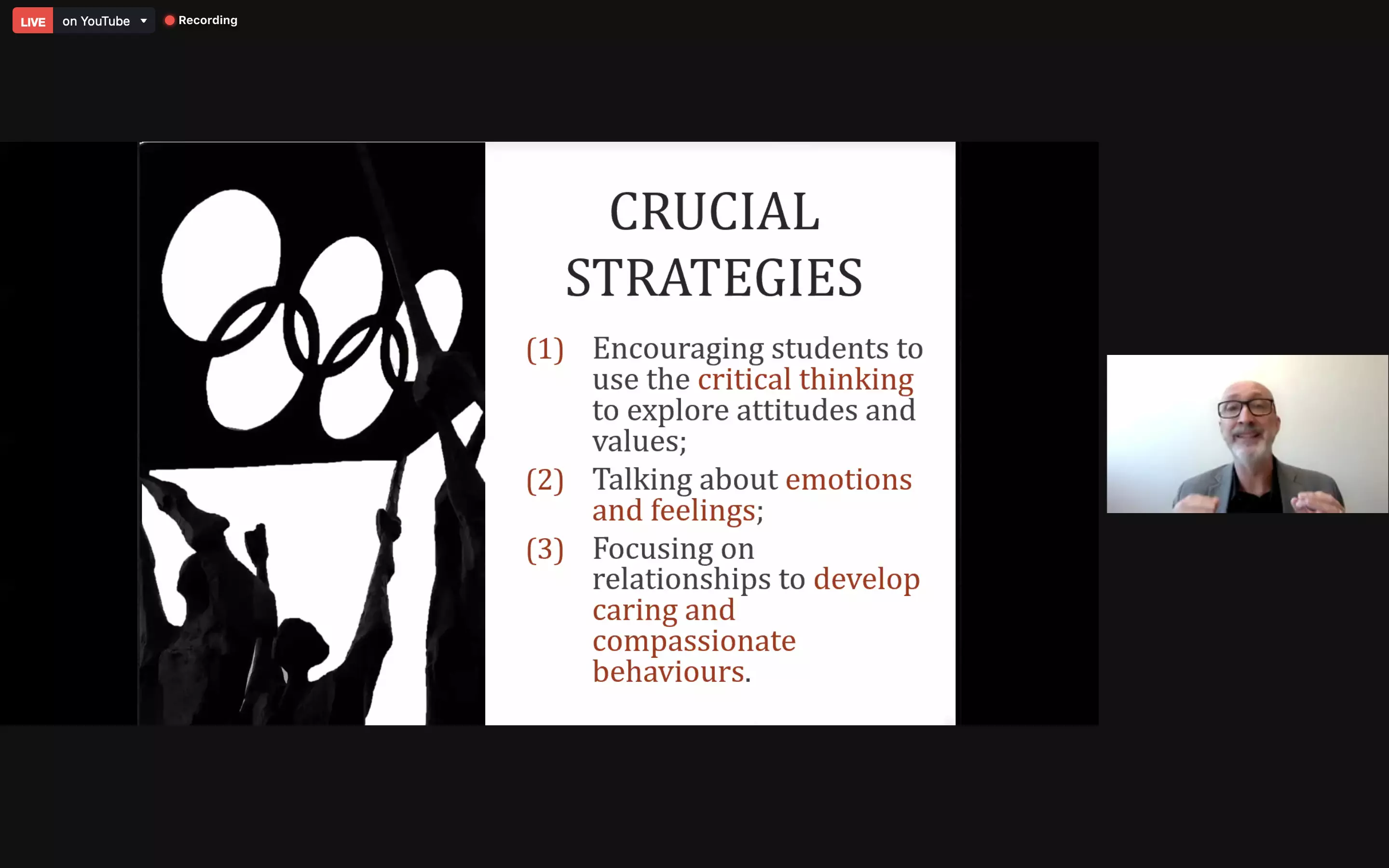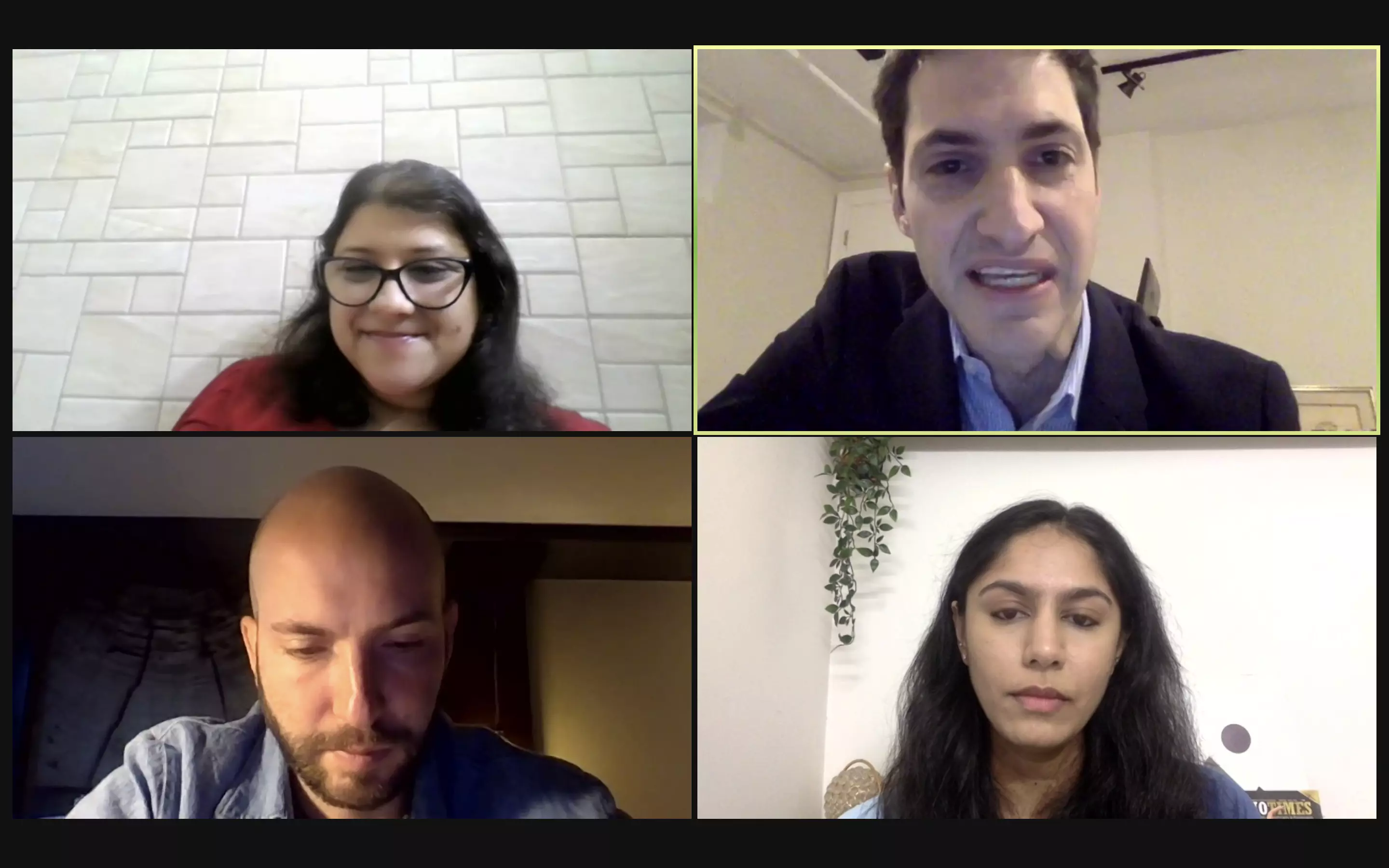
[ad_1]
Entering the lesser talked about territories of sports, the Abhinav Bindra Foundation (ABF) through their webinar, the third one in the ongoing series about Olympism and its values, ventured into new realms. Preaching the usage of sports as a tool for bringing about inclusivity and breaking the barriers – mentally, physically and socially, the third webinar in the series talked about ‘Sports for Inclusion – Breaking Barriers‘ and saw eminent speakers from around the globe lending their thoughts to the need for making sports accessible and inclusive for all and erasing the stigma that surrounds athletes with disabilities.
Ably moderated by Delnaz Elavia, the delivery head for Consulting Practice at Great Place To Work in India, the session saw a keynote address being given by Professor Dr. Nelson Todt of the Pontifical Catholic University of Rio Grande do Sul, which was subsequently followed by a hearty panel discussion featuring Eli Wolff, the Director of Power of Sport lab and 3-time Olympic gold medallist shooter and founder of ‘Make a Mark’ initiative, Niccolò Campriani and India’s very own star para shuttler Manasi Joshi, the reigning World Champion.
Adopting Olympism as a way of life

Dr. Nelson Todt during his keynote address
Sports, as an activity, is something that encompasses the presence of both the mind and the body and promotes critical thinking. In the keynote address by Dr. Nelson Todt, the professor mentioned how Olympism and its values can play a revolutionary role in making the world more inclusive. By adopting Olympism in a pedagogical manner and letting certain world institutions that encourage ethical attitudes practise and preach the same, inclusivity can stop being a dream and become a reality instead.
Using sports as a form of social inclusion, world institutions can implement the values laid down by Olympism and use it to make the world a more ‘equal’ and ‘all-accessible’ place.
Sport cannot solve all of the world’s ills, but I am convinced it can contribute to meaningful solutions – Jacques Rogge
Advocating the need for Olympism to light the way ahead, Dr. Nelson, also emphasised how keeping people involved in sports can be a path-breaker in making them more critically aware and by changing the mindset, progress and inclusion can be achieved. Igniting the critical senses is the real key to change and to inspire people, one can use the examples of famed Olympians and soccer players and let their life’s principles in turn, inspire people to take up the path of Olympism and lead the way to a more inclusive tomorrow.
Sports as an instrument for change

The esteemed panellists and the moderator – Delnaz Elavia (top left), Eli Wolff (top right), Niccolo Campriani (bottom left) and Manasi Joshi (bottom right)
The power of sports is immense and all three panellists – Eli Wolff, Niccolò Campriani and Manasi Joshi were in unison about its power to change the world. Eli Wolff mentioned how disability is just another part of the human experience and should not be stigmatised but rather thought to be a part of the same fabric of life, only a different dimension to it.
Meanwhile Niccolò Campriani who has founded the ‘Make a Mark’ initiative that undertook three refugees and accommodated them in the sporting fraternity in efforts to rehabilitate them has seen live examples of how sports can play an inclusive role.
On the other hand, Manasi Joshi, who is nearing the 10th anniversary of being a disabled person, has seen through her own life experience how wide the gap is between able and disabled athletes and how it is through sports only that change can be brought about.
Manasi, who was always an outgoing person, constantly involved in cultural and sporting activities felt life come to a standstill when she met with an unfortunate accident. Dabbling well in theatre and badminton and football, Manasi Joshi had to reassess her life after the accident and having her leg amputated. As she approaches the decade mark of being a person with disability, Manasi has seen the face of both worlds and it is only because of her disability has she been able to find her voice and be more outspoken, meet new people and understand the little nuances of humanity better.
Manasi, who became the first Indian para-athlete on whom Barbie modelled a doll on the occasion of the International Day of Girl Child in 2020, has come a long way since her accident. Making ripples on the badminton circuit, the reigning World Champion has realised that a mindset change needs to arrive and using sports and the values of Olympism will help take a step in that direction.
‘Nothing about us without us’
Making disability a part of the conversation through his career’s work, Eli Wolff realized early on in his life that a normalisation needs to be done when it comes to disability. Having experienced exclusion, Wolff ended up realising how it is actually a lesson on inclusion instead and is therefore important to get a better understanding of how the world currently functions. Disability and the rights of disabled people are often overlooked and more importantly, stigmatised. To remedy this attitude, a severe change in mindset is the need of the hour and for that awareness of these very rights is crucial to help disabled people transition from being ‘invisible’ to gaining visibility and finally through that awareness, empowering oneself and remaining in the visibility – this circle needs to be traversed.
All three panellists, Eli, Niccolò and Manasi have seen from close quarters how disabled people are treated and they have concluded that no discussion, or conversation that concerns the disabled can be done without involving them. Firmly placing their faith in the slogan – Nothing about us without us, a phrase commonly associated with International Day of Persons with Disabilities since 2004, the trio of panellists wants to see change arrive soon and sports is their choice of medium to bring about that revolution.
Manasi Joshi, spoke from personal experience and recalled an incident when she was a new amputee. Manasi’s mother wanted her to visit the temple to offer prayers – but the only issue was Manasi was unable to take off the shoes off her prosthetic leg, as she wasn’t used to walking without it then. In a rare occurrence, Manasi saw how even temples, where it becomes customary to remove shoes before entering the premises, also showed sensitivity to her cause as the priest allowed her in. However, Manasi mentioned that this isn’t a common occurrence but sensitivity of this sort needs to be adopted and places need to be made accessible for all and disabled-friendly.
In conclusion, the trio of panellists mentioned that disability cannot be the only marker of an individual – any person is larger than just their disability and we need to focus on those aspects as well. Seeking to change the attitude of pity and charity towards disabled individuals, all three advocated the necessity of bringing about change through sports and the spirit of Olympism and indicated that the sea of change is waiting to unfurl – the waves are ready to arrive, only we need to know how to surf these new waters, that spread the message of inclusivity.
[The Bridge, which is a dedicated platform for the regular coverage of Olympic sports, is the exclusive media partner of the Abhinav Bindra Foundation whose philosophy twins with promoting the Olympic spirit among people and encouraging the growth of the nation through sports.]
[ad_2]
Source link